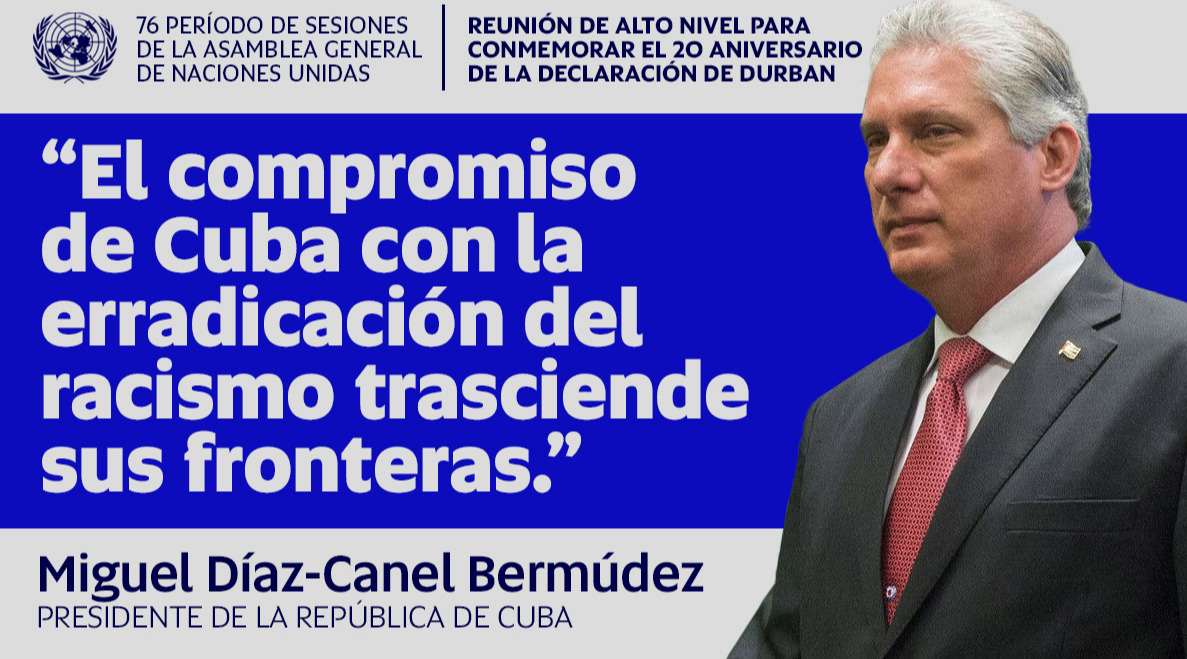
Image taken from @CubaMINREX
By María Josefina Arce
Mestizo, Afro-Latin and Caribbean. This is how President Miguel Díaz-Canel defined Cuba, a nation that lives proud of the roots that make up its humanist, dignified and fighting identity.
The Cuban leader spoke at the UN High-Level Meeting to commemorate the 20th anniversary of the Durban Declaration and Program of Action, which laid out the path for confronting all forms of racism, discrimination, xenophobia and intolerance.
A plan that the Revolution made its own, since the fight against all kinds of racial hatred was already in the work and thought of our independence heroes such as the National Hero José Martí, who wrote that "Man is more than white, more than mulatto, more than black..."
The country that was born in January 1959 honored that ideology, carrying out profound transformations to eliminate institutionalized racism and discrimination.
It was the Revolution that made education and health care, among other rights, accessible to all Cubans, regardless of skin color, gender, religion or political ideas.
It created and strengthened throughout these decades a legal and institutional framework to guarantee every citizen the same rights, freedoms and opportunities as endorsed by the new Constitution proclaimed in April 2019.
However, as the Cuban president stated in his speech, laws and decrees are not enough to erase centuries of discriminatory policies in societies. Therefore, in November 2019, the National Plan against Racism and Racial Discrimination was approved by the Council of Ministers as a government program.
This plan is implemented by a government Commission, headed by Díaz-Canel, and 18 agencies of the central state administration and an equal number of civil society organizations are involved in it.
One of its main objectives is to identify the causes of this phenomenon and propose actions by territory, locality, branch of the economy and society, in general, to advance in the eradication of these discriminatory manifestations that have nothing to do with the spirit of social justice of the Revolution.
And in order to continue advancing in its implementation, this year the Provincial Commissions were constituted, made up of governors and representatives of the different sectors.
The actions deployed to advance in the elimination of racial prejudices that still persist in some people are a demonstration of the political will of the government and its commitment to the Durban Declaration and Program of Action.
A commitment that, as President Díaz-Canel pointed out, transcends the borders of the Cuban archipelago, so that the peoples of the world can always count on our contribution in this fight against any kind of discrimination and racism.

